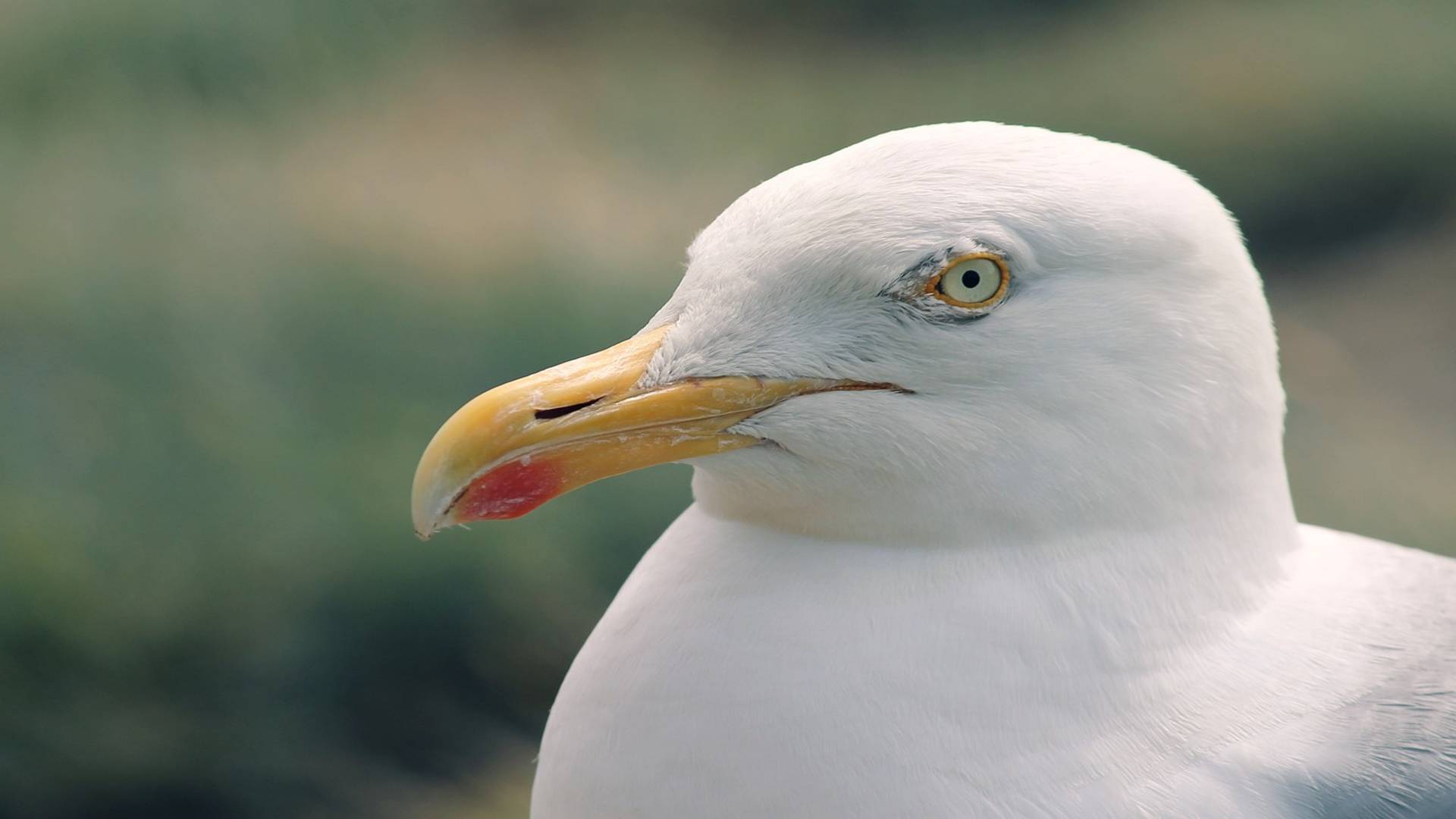When most people think of doves, they think of the peaceful creatures often used as symbols of love and peace. However, some doves are quite aggressive and can be a nuisance to those around them.
Keep reading to find out more about these fascinating creatures.
In this article, we will look closely at why some doves are aggressive and what you can do to mitigate this behavior.
Let’s get started.
Are mourning doves aggressive towards humans?
Mourning doves are generally peaceful birds, but they can become aggressive under certain circumstances. They may become aggressive when defending their territory, during breeding season, or when protecting a food source1.
Male mourning doves can be aggressive when defending their territory, puffing up their neck and hopping in fast pursuit of birds that they feel are encroaching too closely into their chosen space2.
They may also be aggressive towards other males who may be vying for a female’s attention during breeding season. Mourning doves may attack humans if they feel threatened, such as if a human approaches too close to a dove’s nest or a female dove with chicks
Are doves aggressive?
Doves, particularly mourning doves, can exhibit aggressive behavior, despite their symbolic association with peace.
Male unmated mourning doves can be aggressive towards each other as they compete for females by perching, cooing, and displaying wing flapping behaviors. This aggression can also extend to interactions at bird feeders, where dominant doves may chase away other birds.
Additionally, mourning doves can display aggressive behavior during mating rituals and interactions with their young3. While mourning doves are known for their peaceful cooing calls and graceful appearance, they can demonstrate aggression in various situations
Do doves bite?
Doves can bite if they feel threatened. Biting is usually a defensive reaction and is usually used to ward off predators or intruders. Doves may also bite if they feel their chicks are in danger or if they are cornered and cannot escape. If a dove does try to bite, it will generally use its beak rather than its talons.
Their beaks are not as strong as raptor birds, so the wounds are usually minor and not very painful. However, it is essential to be aware of the signs of aggression so that you can take steps to avoid being bitten.
Are mourning doves territorial?
Mourning doves are indeed territorial. They establish territories during the breeding season to attract mates and communicate with other doves in the area. Male mourning doves perch prominently and call out to potential mates to advertise their presence and attract females to their territory35.
They can be seen chasing off other doves that encroach on their territory2. During courtship, males perform noisy flights followed by graceful glides to attract females, and mated pairs often preen each other’s feathers
Are doves dangerous?
While doves may seem harmless, these birds can actually pose a serious threat to public health. Doves are known to carry a variety of diseases, including Trichomoniasis.
Given their risks, it is important to avoid contact with doves whenever possible unless you are sure that the bird is healthy.
If you must handle them, wear gloves and wash your hands thoroughly afterward.
Are doves aggressive when nesting?
Doves are not typically aggressive when nesting. In fact, they are known for being gentle and peaceful birds. However, like any other bird, they may become protective of their nest and young if they feel threatened or if someone gets too close to their nest. It’s important to give nesting doves their space and avoid disturbing them to ensure the safety of both the birds and humans.
Dove aggressive behavior
While doves are usually seen as peaceful creatures, they occasionally exhibit aggressive behavior. This is often seen during the breeding season when the birds are territorial and protective of their mate and nest.
However, dove aggression can also be triggered by a lack of food or water or by perceived threats to their safety.
When doves feel threatened, they sometimes attack by flying at an intruder and striking them with their beaks or wings.
In severe cases, they may even lunge forward and bite. Fortunately, dove aggression is usually short-lived and not particularly dangerous.
So, taking precautions when handling these birds is important, as their beaks can deliver a painful peck.
That being said, dove bites are relatively rare, and these birds are not typically considered to be dangerous.
Whether you are dealing with an aggressive dove or a peaceful one, it is important to handle these birds with care. Doves are delicate creatures and can easily be injured.
If you are concerned about a dove’s safety, it is best to contact a professional for help. A qualified veterinarian or animal behaviorist will be able to assess the situation and provide guidance on how to best address the issue.
Despite their aggressive behavior, which can take place depending on the situation, doves don’t just attack for no reason. In fact, they are smart birds.
In a recent article I published, I talked about how doves are one of the smartest birds on the planet and how they are able to interact with humans.
To read it on my site, simply click the link.
Are doves aggressive to other birds?
At first glance, doves may seem like gentle and timid creatures. However, these birds can actually be quite aggressive, especially when it comes to protecting their young.
Mother doves will fiercely defend their nests from any perceived threat, whether a predator or another bird.
So, if you’re thinking of keeping a dove as a pet, be prepared for it to stand up for itself (and its territory) if necessary.
Are doves peaceful?
The image of a dove is often associated with peace and tranquility. They are seen as gentle creatures that symbolize hope and new beginnings.
However, not all doves are so docile.
In fact, some species of doves can be quite aggressive, particularly when it comes to protecting their young. Even the peace-loving white dove is known to attack intruders in its nest.
So while doves may be seen as a symbol of peace, they can also be fiercely protective. In other words, don’t always believe what you see. Sometimes, the true nature of a creature is not always so simple.
But what species of doves are the most aggressive?
The most aggressive doves include:
- White-winged dove
- Eurasian collared dove
- Mourning dove
- Rock pigeon
- Spotted Dove
Of these, the white-winged dove is considered to be the most aggressive. This species attacks other birds, animals, and even humans.
Most of the time, these attacks are simply a case of the bird feeling threatened. However, they can also be triggered by a lack of food, or water, or because they’re in the breeding season.
While most species are not particularly aggressive, some can be quite territorial and protective.
How do you calm a dove?
While doves are generally gentle birds, they can also be quite wild and aggressive, particularly during mating season.
Taming a dove requires patience and understanding.
The first step is to earn its trust by offering it food from your hand. Once the dove feels comfortable around you, you can stroke its feathers. It’s important to move slowly and carefully at first; if you startle the bird, it may try to fly away or bite you.
Then, you can try to hold the dove in your hands. Start by cupping your hands around its body and gradually tightening your grip. If the dove feels comfortable, it will allow you to hold it.
If it tries to struggle free, you’ll need more time to adjust to your presence.
Summary
Before we move on to the conclusion, we’ve summarized this article into a short list of key points for you to remember:
- Doves can become aggressive if they feel their territory is being invaded or if they are protecting their young.
- Vocalizations and body language can indicate territorial behavior in doves.
- Doves are generally not dangerous, but they may become defensive and use their beaks to bite when threatened.
Final thoughts
We went over the reasons why doves might be aggressive and what you can do if you have an aggressive dove.
Also, we learned that not all doves are gentle and peaceful creatures. In fact, some species can be quite aggressive, particularly when they are nesting or during the breeding season.
Want to learn more about doves?
Ready to boost your knowledge to the next level? If so, check out the articles below:
- Are Doves Color Blind? (Explained)
- Do Doves and Pigeons Make Good Pets?
- What Do Turtle Doves Eat? Everything You Need To Know!






